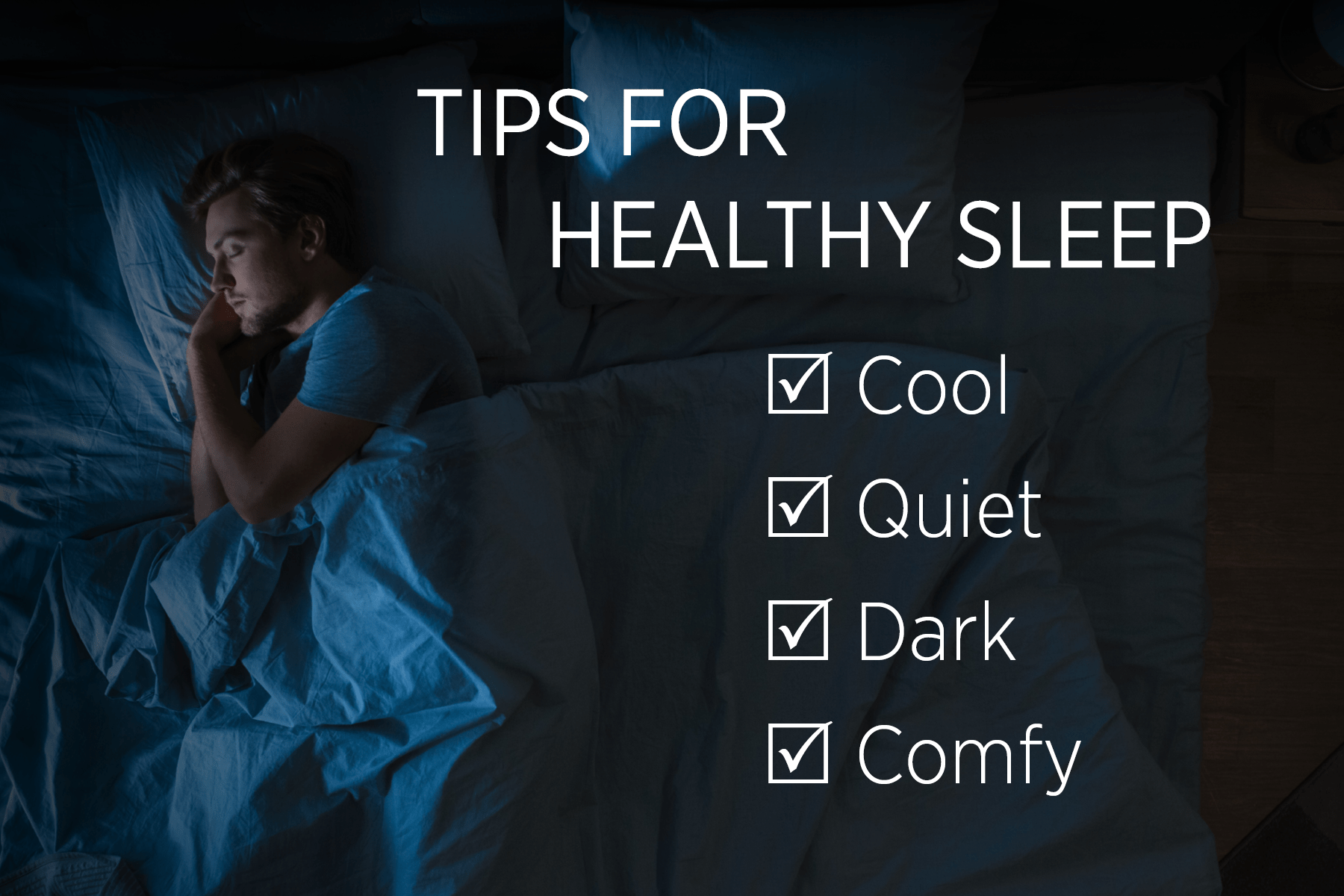
Pillow Talk: How to Develop Healthy Sleeping Habits
For many of us, sleep is hard to come by. Even after counting sheep, listening to white noise, or listening to a boring podcast, it can sometimes be difficult to get to sleep.
Good sleep is important for our overall well-being, as it improves brain function, mental health, our immune system and better physical well-being. For National Sleep Awareness Week, we want to highlight important tips for healthy sleeping habits so you can maximize your sleep each night.
Create and Stick to a Sleep Schedule
The commonly recommended amount of sleep for an adult is seven to eight hours a night. Children and adolescents need up to nine hours. Establishing a schedule of when to go to bed and when to wake up can ensure you get as much of this sleep as possible. While our schedule can change occasionally, it’s best to establish a schedule and try to stay consistent.
Create a Comfortable Sleep Environment
A good sleep environment is important for that deep REM sleep that allows your brain and body to repair and rest. In addition to a comfortable bed, it’s best to keep the room temperature cool and free from noise and light stimulation. Don’t forget to plan ahead when traveling or on vacation to maintain consistent sleep patterns.
Limit Screentime Before Bed
Whether it’s a good movie, social media, or working on your laptop, medical experts recommend limiting screentime before bed, as the blue light emitted limits our production of melatonin – the hormone responsible for sleep. Although all types of light can have this impact, our eyes can be particularly sensitive to blue light. Plan to put your devices away at least one hour before you crawl into bed.
Minimize Food and Drinks Before Bed
Eating food or drinks right before bed can cause discomfort that can disrupt our ability to fall asleep and decrease the quality of sleep. The stimulating effects of nicotine and caffeine can last for hours, and while alcohol can induce drowsiness initially, it can also interfere with sleep later in the night.
As you navigate the hustle and bustle of daily life, it’s important to recognize the significance of quality sleep. By following a consistent sleep schedule, creating a comfortable sleep environment, limiting screen time before bedtime, and being mindful of our food and drink intake, we pave the way for restful nights and energized days.